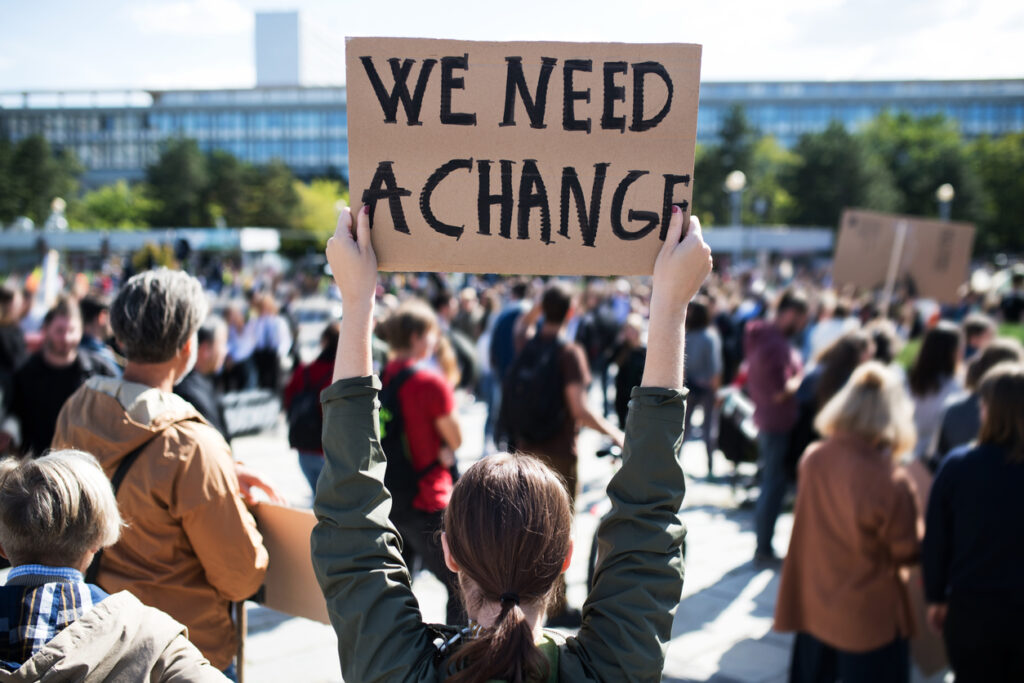Over the past few months, most families across the country have lived in relative isolation due to shelter-in-place orders designed to mitigate the impact of the coronavirus pandemic. We’ve written several articles on the various ways this affects teens: they’ve missed school, missed seeing their friends in person, and missed milestone events like proms and graduations.
Just when everyone thought things were looking up – as many parts of the country entered the first phases of reopening – the tragic death of George Floyd on Monday, May 25th changed everything. By Friday of that week, there were demonstrations and protests everywhere: from big cities to small towns, communities took to the streets to voice their anger, pain, and frustration.
In some cases, the situation turned violent, as police and protesters clashed.
And our teens are seeing it all unfold on the news, over their social media feeds, or in person.
How the Protests Affect Your Teenager
Here at Evolve, our specialty is teen mental health and addiction treatment. When the safety of teenagers is involved, we speak up. Our number-one priority is always the health and wellbeing of our teens – which includes both their physical safety and their mental health.
Our message is simple:
Keep an eye on your teen during this time.
Whether they join the protests or not, teens are likely to feel very emotional during this time. Many adolescents struggle with overwhelming rage, anger, sadness, anxiety, shock, and distress. Often, these feelings can overlap, or occur simultaneously.
For teens with preexisting depression, anxiety, or other mental health, substance use, or behavioral issues, the incidents of the past few weeks may have exacerbated their symptoms. The timing of the nationwide unrest compounds the stress associated with it: this is all happening at the end of three months of coronavirus lockdown.
“This is a crisis on top of a crisis on top of a crisis,” says Dr. Stuart Buttlaire, Regional Director of Behavioral Health and Addiction Medicine at Kaiser Permanente in Northern California, in an interview with San Francisco’s KRON4 News.
“Even before COVID-19, our youth had been experiencing high degrees of distress,” he said, citing the high rates of teen suicide around the country annually.
Which is why experts are seeing and predicting an increase of teen mental health issues at this time.
“Kids are feeling this so strongly… [it’s] a generation where teens are much more empathetic to each other,” Dr. Buttlaire says, citing evidence of a 50% increase in teen mental-health related discussions on social media.
Validate Your Teen’s Emotions
Mental health experts suggest parents take time to check in with their teens about how they feel about all this. Whether it’s intense anger, sadness, anxiety, fear, or curiosity, parents can validate all of these emotions.
Dr. Buttlaire encourages parents to ask their kids “how they’re understanding the social unrest around them. What are they seeing? What are they feeling?”
He admits that “a mixture of empathy and fear is normal right now” even for many adults, and parents bear the responsibility of normalizing these emotions for their children as well.
Teens Struggling With Mental Health
This is a very intense time for teens, and parents maintain the responsibility of ensuring their teens are safe in every way.
If your teen has a history of self-harm or suicidal behavior, it’s wise to be especially watchful of them at this time. The same goes for teens who struggle with oppositional-defiant disorder (ODD), disruptive mood dysregulation disorder (DMDD), anger-management issues, or other behavioral issues: keep an eye on them.
For these teens, powerful, overwhelming emotions such as rage or sadness can become very intense and cause them to take risks they might later regret or would be otherwise life-threatening. Dr. Buttlaire says teens who have had trauma as children, such as those with Adverse Childhood Experiences (ACEs), are especially vulnerable in this situation too.
In Conclusion
In a nutshell, we encourage parents of teens – especially teens with preexisting mental health issues – to keep a very close eye on them during this time. Talk to your children about what they see, think, and feel. If they’re in crisis, or they engage in risky behavior, seek professional support immediately.
































































